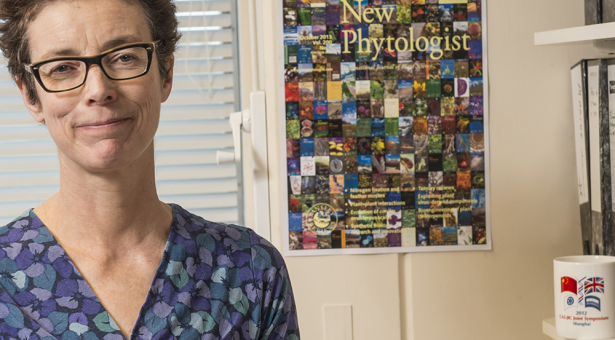John Innes Centre scientists mine plant genomes for valuable chemicals

Plant scientists in Norwich have scoured the genome sequences of 17 different plant species to find genes that could help produce high-value chemicals on a large scale.
Published today in the journal Proceedings of the National Academy of Sciences of the USA, Professor Anne Osbourn led colleagues from the John Innes Centre, and collaborators in Russia and the US, in an ambitious project to identify genes encoding enzymes involved in the synthesis of chemicals called terpenes.
Many terpenes have important uses in industry, for example some are used as food flavourings, cosmetic fragrances, pesticides and pigments. Others are active ingredients in pharmaceutical products, including widely prescribed cancer drugs and anti-malarials.
The team were specifically interested in finding terpenoid synthase genes, which encode enzymes that give terpenes their basic structure, and cytochrome P450 genes, which are responsible for modifying the basic structure. Each plant species has a functionally distinct set of these genes, so across the plant kingdom there is an almost infinite number of ways to create chemicals with different properties.
Professor Osbourn said: “Plants produce terpenes in very tiny amounts, so it is a rather wasteful, labour-intensive and above all expensive process to extract them directly from plants. But now we know where to find the genes responsible for making terpenes, we can start manipulating these genes to yield larger volumes of product more sustainably.”
The BBSRC-funded research found that in many plants the terpenoid synthase and cytochrome P450 genes tend to cluster together rather than being scattered about the genome, making genetic engineering relatively simple. One next step could be to use synthetic biology techniques to turn plants into ‘factories’ for the production of specific, valuable terpenes.
Another possibility is to insert plant terpene genes into the cells of a microorganism such as yeast. Yeast grows quickly, easily and in large volumes, so it is ideal for the production of terpenes on an industrial scale.
Professor Osbourn said: “We’re really excited by the prospect of ‘growing’ terpenes in yeast. It would make the manufacture of these chemicals much more sustainable, environmentally friendly and cheaper – and anything that makes things like cancer drugs and anti-malarials cheaper to produce is going to be a huge benefit to society.”
